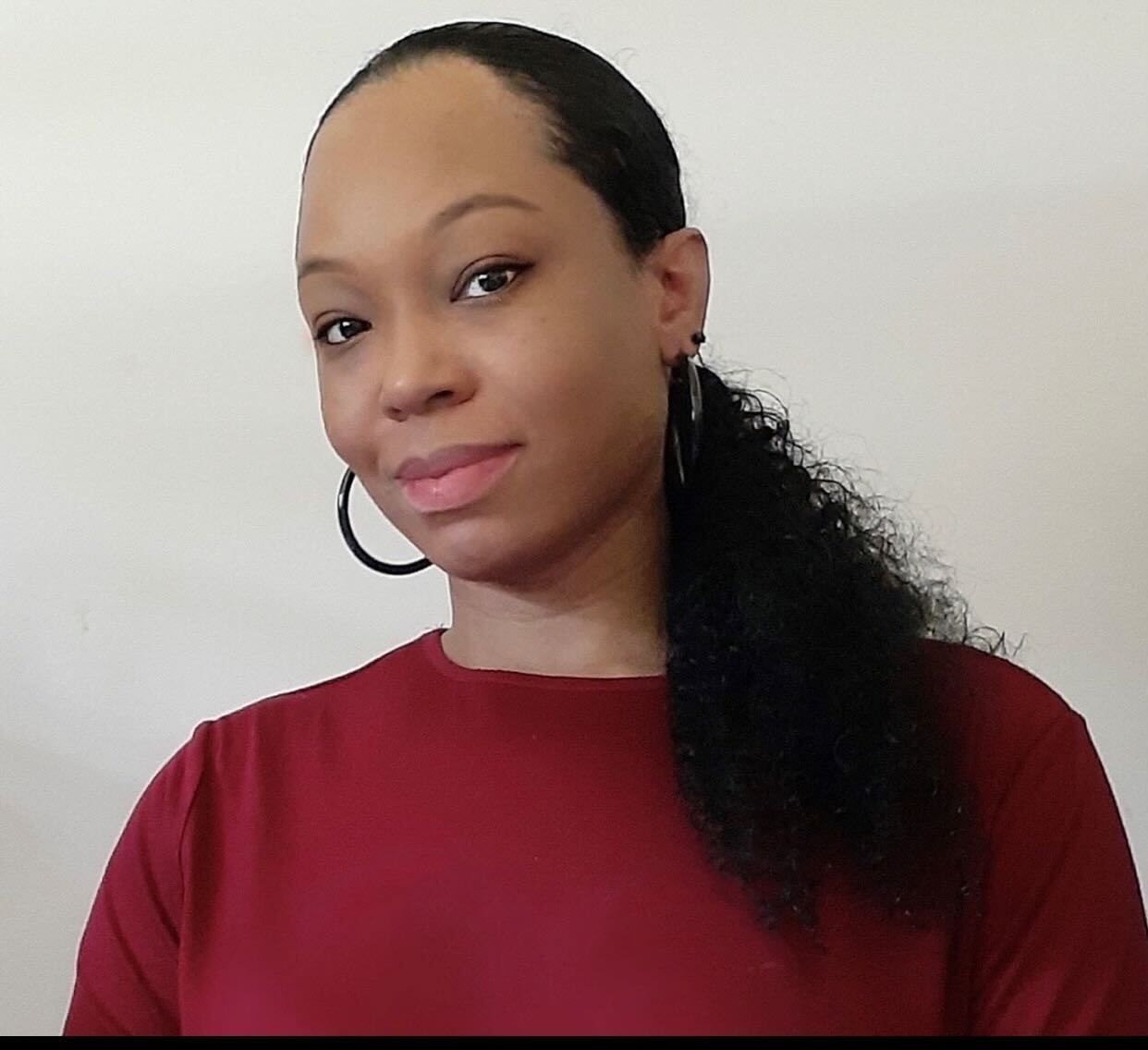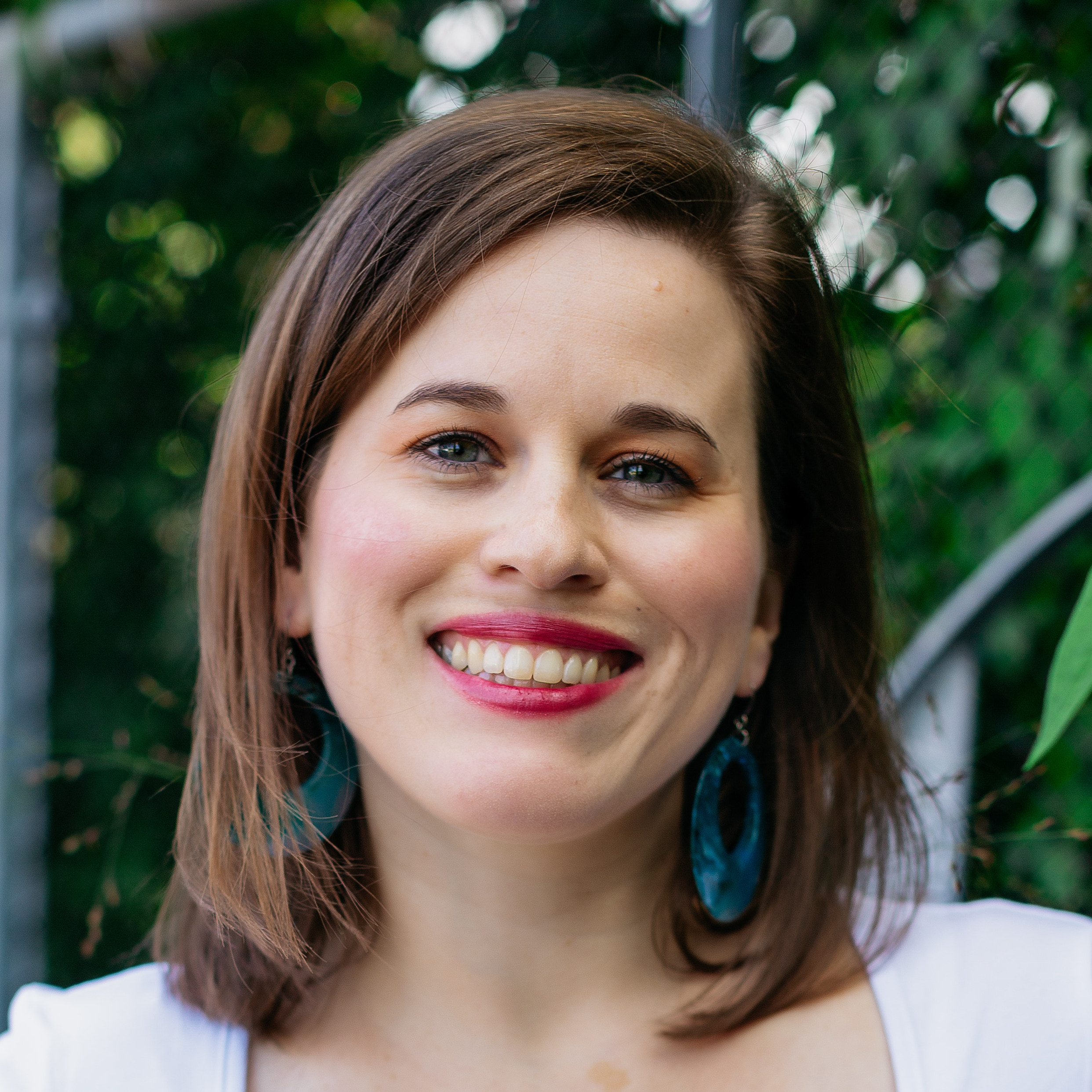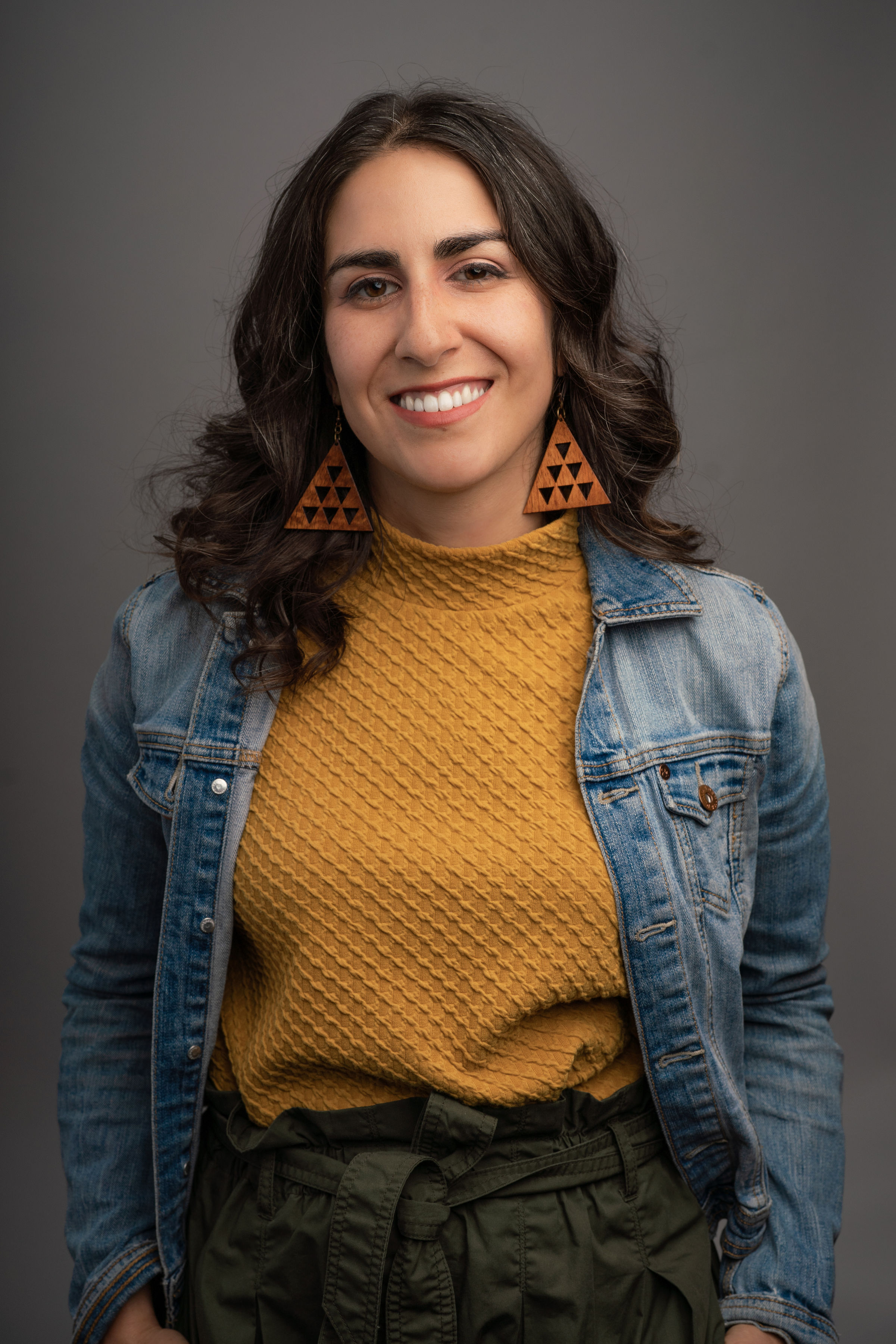When Jeremy Kaplowitz and Alex Ptak decided to start a podcast together, they knew what they wanted to make. Something low-lift, highly clippable, and, of course, funny—they’re both comedy writers. Together they created Quorators, a show dedicated to exploring the stupidest queries on Quora.com. They’ve been able to bring on guests like Josh Gondelman and David Cross to help them get to the bottom of shower thoughts like “are cows actually carnivores?”
We talked to Jeremy about how improv and standup inform his podcasting style, and how to figure out which friends you can work with…and who to avoid. This conversation has been edited for length and clarity.

When you first got into audio, how much did you know about the tech side of things?
Very, very little. With the podcast I did before this, I tried recording in my closet because I knew that people say that that's a thing. It did not work. The first few episodes I did, I almost fainted because I was like, in a closet in my New York apartment.
Quorators we record in person, which is so much easier. I really hate recording over the internet, honestly.
What does your tech setup look like at this point?
We record at my co-host Alex's apartment. We have a RODEcaster Pro, and we just plug four XLR microphones into it. They're pretty standard microphones, I think. [From YouTube clips, they seem to be the RODE PodMic for the hosts and a Shure SM78 for the guests -Ed.]
We use the soundboard on the RODEcaster because we think sounds are funny on a podcast. If you have no self control, it lets you turn your show into like, a morning radio show, which is what we do.
And then we will make really bad little musical intros to stuff and just make our guests sit through them without any warning. Some of our guests like it. Some of them visibly don't, which I think is also fun.
I was reading one of your interviews that you did with somebody before this call, with someone from This American Life.
Yeah, Jane Marie.
She seems far more professional than me. She was distancing herself from the standard, two guys who think they're funny and have no premise. They're kind of just around because they have wives. And I was like, Oh, that's me and Alex. Which is great. I mean, her show sounds very good. And ours is truly dumb.
We value diversity here at How They Made It! So how much prep do you guys do? Do you kind of plan out jokes or a format, or is it just, let’s go in pretty cold, and riff for as long as we can riff for?
We try not to talk about it too much just before we start recording, because then it feels less fresh. We’re not gonna like, redo our joke about something or whatever. We have a big Google Doc with like a hundred questions. Sometimes I'll search “Quora” on Twitter and see if people are posting screenshots and I'll put them in there. We make a little playlist, and usually it's stuff we've both kind of glanced at or forgotten about, and then we try to go into it fresh.
I guess the prep is that we've been doing comedy for so long, and we both have been podcasting for a long time too, so that definitely helps.
We're in such a weird place now, where you might give someone the advice: if you want to do a funny podcast, you should try standup first.
Or even take an improv class or something. I know it's a cliché, “yes and” or stuff like that, but sometimes we'll have people on our show who maybe don't really have that background, and they don't know how to escalate a joke or continue a joke.
Which is totally fine. We’re happy to like—they have their own perspective and stuff, but sometimes we'll ask a question that's obviously silly. Like, is Jesus Santa Claus's dad? If you have a comedian on, they'll be, “Everyone knows this.” But if you have someone who doesn't really have that background, they'll be, like, “No, he's not.” And I'm like… okay.
You have to be able to think on your feet, and not be afraid to just throw something out there. The big thing in improv is listening to what people are saying specifically. It’s about more listening than talking. And I think that's probably podcasting as well: really clueing into what people are saying so you can react to it in an interesting way.
Do you book all of your guests yourselves?
Yeah, we do everything ourselves. We have no producer. Alex, my co-host, has two cats who will sometimes step on the buttons of our soundboard.
So we book everything, we edit everything. We've both been doing comedy for a long time. A lot of people that we knew in like, open mics or whatever are now more successful and they'll come on.
A lot of the booking guests is just sliding into Twitter DMs. We have a small following on Twitter, and that can help create social trust with someone. If they follow you back, you can slide into their DMs and be like, “Hey, come to Brooklyn.” As Twitter dies and Instagram grows, we're panicking a little bit, ‘cause we're not really on there.
Yeah, the collapse of Twitter is screwing writers in every genre, I think. Have you had any success on other social platforms?
When we started this podcast, we were very much like, we're going to be a clips podcast. We’ve been doing it for like a year and a half and we've been cranking clips out. They don't really do that well. It feels really random and we have no control over it, which sucks.
And if we say anything that's even a little bit, like has a curse word in it, it'll just get shut down. Twitter—as evil as Elon Musk is—it was slightly more democratic than these super algorithm based ones like Instagram and TikTok.
How do you capture the stuff you use to make those clips?
When we record, we film it on two cameras. I put it in Premiere, clip it up, put captions on it.
Video podcasts are really weird. It kind of sucks, because I feel like the whole point of podcasting is that I'm not supposed to have to think about my body at all, and now I do. People are like, Jeremy looks weird. Or, you wore that shirt last week. And I'm like, what happened to having a face for radio?
But it is good because I feel like podcasts traditionally have no discoverability at all. There’s no real way that you can, like, go viral on a podcast really, except for word of mouth. So it's nice to at least have another platform, like YouTube or whatever, where it could pick up in theory and get recommended to someone.
How intensive is the editing process?
It’s honestly embarrassing how little we edit. We record on one track. Our philosophy with podcasting is, just don't say the wrong thing. When we've edited stuff out of the show, it’s usually because it got boring or there's a long pause. If you have two cameras, it's very easy to make it look right.
It sounds more like you guys are making a comedy show than a podcast. Or like, the intention is to make a comedy show, and the podcast is just the way you happen to distribute it.
Exactly. And I try to do a little bit of both. Like in my comedy career, I do other stuff that is super slow and rigid and more industry-based. It's so rewarding to have both of those at the same time. In one part of my life, there are people giving me notes all the time. And then this is something where I can just say whatever I want into a microphone and make my friends laugh and people can enjoy it in a few days.
You have a Patreon for Quorators. Was monetizing always part of the plan?
We very much went into this like, we're going to try to do a legit comedy podcast, that's easy to make and we can crank it out, and we can make clips so we can start a Patreon. That was all intentional.
After having done it for a few years, we've found some of the pitfalls of it. The Patreon is not a lot of money. But it's nice to get to work on something that people can just contribute to. Patreon is such a big source of creative freedom, because there's no notes or anything.
We're not like a huge podcast or anything, obviously. I'm grateful that anybody would want to subscribe to it. And I like that we don't have to beg people for support. It's very much, we have a thing that we're selling to you. And if you like it, you can give us money. And if you don't like it, that's totally fine.
In theory, would you want this to become your full-time job?
I would love that. I think as a comedy writer, most comedy writers I know—who are more successful than me, even—are like, I wish I had a podcast to fund my life. The entertainment industry is really scary right now. Everyone's like, I don't know when I'm going to get hired to do anything ever again. So it's nice to have something that's in the background that's really fun and freeing creatively and is paying some bills.
In the meantime, how do you balance doing both?
I mean, I've had real office jobs and stuff, and those always felt like more energy than doing a podcast. When I worked at Hard Drive, which is where I was before doing this, I did a lot of content creation stuff and that got hard.

On this podcast I mostly work with my friend Alex, and on my writing I work with my friend Phil. The collaborative part of it makes it easier to have strict schedules of like, we always record on this day, we always write on this day. The money aspect of it is more stressful than the work aspect of it right now, just because it's just so unclear where people's jobs are gonna be.
Also with Hard Drive, I will say—every day out of college, I was like, man, I just want to quit and do comedy full time. I thought that was the peak of what I could do with my career: pay my bills doing comedy. And now that I've done it, it was really rewarding and great. And I'm proud of myself that I was able to achieve that. But I'm also like, I don't think it's necessarily the end all be all, because what you have to do is crank out stuff that is…fine.
I think I could go back to an office job now and not feel any guilt or shame, like oh, I lost my status or something. Because success is so random. I know people talk about nepotism a lot—that's such a big part of it. And you just have to live with the fact that you're playing the lottery.
How do you have a productive creative partnership without it ruining the friendship?
It has been trial and error. For me it’s about figuring out who I'm good at working with. I've definitely had friends who were not compatible. It's kind of like dating, honestly. Some of those people I'm still friends with, some of them I am not still friends with.
I try to only work with people who I know a little bit, who match my enthusiasm and work ethic. I'm not working non-stop or anything, but it's so much more rewarding to work with people who are gonna do the same amount as you.
And is it hard to have the conversation where someone’s pitching jokes and you kind of have to be like… sorry, that’s not funny?
You definitely have to have a thick skin about it. I don't think I'd want to work with somebody who I couldn’t say that to.
I work with my friend, Phil—we're both internet people. He is a YouTuber and a Twitch streamer. I wouldn't be surprised if there's some level of like, we've both gotten thousands of very mean comments over the years, and have developed a thick skin. We’ve read everything you can read about ourselves.
What advice do you have for beginning podcasters?
When I first started doing comedy, every time I talked to anybody more successful than me, I begged them for advice. And it was very frustrating that they all would just say the same thing, which is: keep doing it. But that really is what it is.
The entertainment industry is very much an endurance thing. It’s really frustrating and it's entirely luck-based. All you can do is try to survive as long as you can.






%20(1).JPG)



























